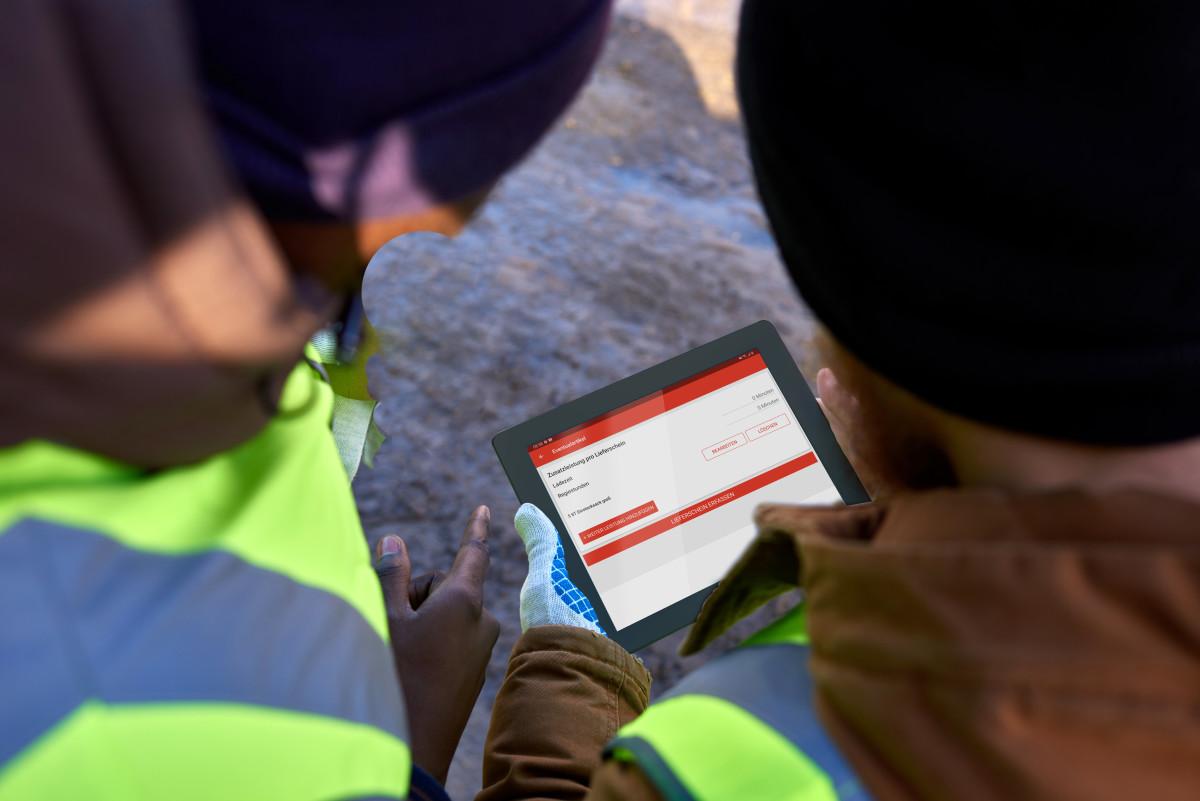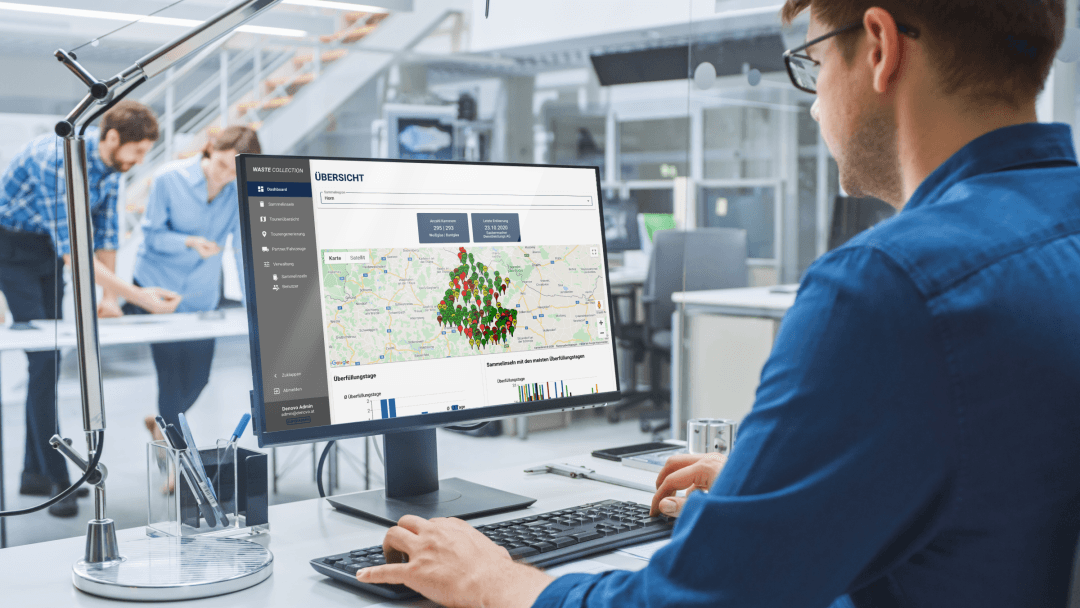Circular Economy
/
10 Ιουλ 2023
Digitalisation and automation in the circular economy

The circular economy is becoming increasingly important in an increasingly resource-scarce and environmentally conscious world. Combining circular principles with the possibilities of digitalization and process automation opens up exciting prospects for sustainable business models.
Networking the industry
The waste or circular economy industry is currently undergoing an exciting transformation. Although traditional in nature, it is now increasingly working on innovative solutions. Through innovation leaders:inside such as Saubermacher, Nehlsen, Thommen and others, digitalization and thus opportunities are being driven forward. These changes range from the introduction of Mobile Order Management, which is used in garbage trucks with the help of tablets, to the development of proprietary business models that focus exclusively on connecting consumers with service providers. One example is Wastebox.biz, which acts like a kind of Uber for construction waste. This platform makes it possible to conveniently order waste dumpsters and thus represents a significant step forward for the entire industry.
Automation of processes
By automating processes in the circular economy, companies can work more efficiently and reduce costs. Intelligent machines and robots can be used, for example, in the sorting and recycling of materials or assist in the analysis of materials. This leads to greater accuracy, productivity and speed of operations. One such tool is the Materialscanner, developed by Denovo and Saubermacher, which, during the pouring of waste into the garbage truck, recognizes which materials are inside.
Development of recycling apps and platforms
The development of apps and platforms facilitates interaction between consumers, businesses and recycling service providers. For example, through recycling apps, consumers can get information on how to properly recycle products and find recycling locations near them. Businesses can offer materials for sale or exchange on platforms. This simplifies and promotes the exchange of resources. Denovo has already gained a lot of experience in this area. We have already provided technical support for two successful recycling apps in the past.
Data analytics for optimized decision-making
By leveraging Big Data and advanced analytics techniques, companies can gain valuable insights to optimize their circular activities. For example, data analytics can help monitor material flow, identify bottlenecks, and take preventive measures to avoid waste. Data-driven decisions can help companies improve resource efficiency and reduce costs. A perfect example of how software helps make decisions is the Smart Collection Portal. Sensors made by the company SLOC are used to monitor the status about the filling level of individual waste collection garbage cans from Saubermacher. Based on this information, the most efficient collection route is automatically calculated. This saves time, reduces costs, and keeps CO₂ emissions to a minimum.
Conclusion
Combining circular economy with digitalization, process automation, and app and web development opens up new opportunities for sustainable business models. Digital traceability, automation of processes, development of recycling apps and platforms, and data analytics are examples of how innovative technologies can make the circular economy more efficient and effective. By using these digital solutions, companies can not only achieve economic benefits, but also make a positive contribution to conserving resources. By using these digital solutions, companies can not only achieve economic benefits, but also make a positive contribution to conserving resources and protecting the environment. But it's not just the environment that feels the positive effects; the company itself also benefits from a dose of innovation and digitization. Working more efficiently saves resources and thus also costs. The streamlining of processes also leads to greater agility. This increases the ability to react to surprising changes as quickly as possible and thus avert crises.
You can find more about our projects in circular economy and other exiting branches here.

